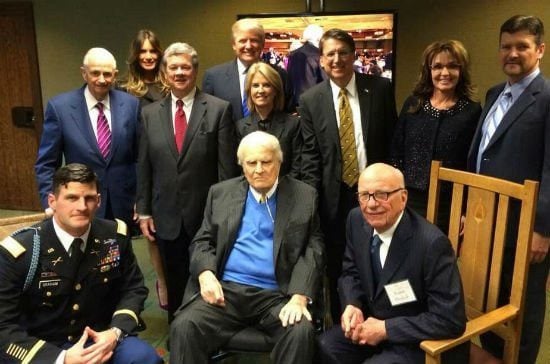I’m a big fan of these homefront propaganda posters produced by the U.S. government during World War II.
 There’s a peppy, can-do spirit about them. The posters convey what folks back then might have called “moxie.” And they presumed that the people reading them would share that spirit. The assumption was that Americans were full of moxie.
There’s a peppy, can-do spirit about them. The posters convey what folks back then might have called “moxie.” And they presumed that the people reading them would share that spirit. The assumption was that Americans were full of moxie.
And that assumption, for the most part, proved correct. World War II could not have been won without the concerted effort of millions of people who never donned a uniform — people who sacrificed, recycled, conserved, rationed and cooperated to support the massive armament and mobilization that made victory possible.
That can-do spirit is part of why former NBC newsman Tom Brokaw labeled them “the greatest generation.” That same spirit lived on, for some time, after the war. And it lives on still in the tangible world that generation left behind for those of us who live here now.
Just look around — we’re all still living among, and living off of, the framework they built for us. Most of our national infrastructure was built during the Depression by New Deal jobs programs, or during World War II, or in the decades just after that war. Look at the highways, bridges, tunnels, airports, railways, pipelines, power grids, communication lines, reservoirs and all the rest of what makes our life as it is possible.
 Without the foundation of that infrastructure built by that generation, our lives as we live them today would not be possible. The greatness of the “greatest generation” isn’t just, as it’s often said, that without them we’d all be speaking German, but also that without the nation they built for us, none of us would be able to commute to work. Not that we’d have to, because without the infrastructure they paid to build, most of our jobs couldn’t exist.
Without the foundation of that infrastructure built by that generation, our lives as we live them today would not be possible. The greatness of the “greatest generation” isn’t just, as it’s often said, that without them we’d all be speaking German, but also that without the nation they built for us, none of us would be able to commute to work. Not that we’d have to, because without the infrastructure they paid to build, most of our jobs couldn’t exist.
The key phrase there is “paid to build.” It’s not just that they enlisted or volunteered or recycled or conserved, but that they paid taxes at a level sufficient to build a better nation for the generations that would follow. As those generations have taken over the nation we inherited, we’ve steadily shrunk both those taxes and our national reserves of moxie. Both have dwindled to puny, inadequate levels.
For 40 years or more we’ve been coasting off the momentum of our predecessors, and there’s little to indicate that we still possess either the will or the capacity — the moxie — it would take to ensure there’s any of it left for the generations to follow ours 40 years from now. (I believe we hit Peak Moxie in 1969, with the moon landing, and have seen a steady depletion in moxie reserves ever since.)
During the Great Depression, some 12 million Americans were unable to find work, so America put them back to work building America. Today, some 14 million Americans are unable to find work. We could put them back to work rebuilding and improving the infrastructure left to us by the greatest generation, but we just don’t want to. (Not even when we’re able to borrow money for free.)
By the standards of our own history, we’re now massively under-taxed, but rather than pay a dime to improve the infrastructure we depend on, or to ensure that it will even survive, we’re fighting for even lower taxes.
That infrastructure has already lasted for decades longer than it was designed — our predecessors built it well. I don’t think the people who built it ever imagined it would last as long as it has. And I think they’d be deeply disappointed to learn that it has had to last all these years. They would be horrified and ashamed to learn that their selfish and short-sighted descendents refused to keep up the payments on the great nation they were bequeathed.
Just look at those posters above and imagine how that kind of message would be received by the stunted moxie-deficients now dominating our national discourse. You don’t have to imagine — just look at how they responded to common-sense new efficiency standards for light bulbs:
A group of GOP lawmakers, including Joe Barton (Tex.) and Michele Bachmann (Minn.), have stirred up — along with their talk radio and Fox News cohorts — public concern over what they say is a looming “ban” on incandescent light bulbs.
There is no looming ban or phase out of incandescent bulbs. The entire hullabaloo is based on a fictitious claim manufactured by Barton.
All major lighting manufacturers, including Philips, Sylvania and GE, currently produce and sell incandescent light bulbs that meet or exceed the new standards (with no compromise in functionality). In fact, the lighting industry helped craft the 2007 legislation with the full understanding that they could produce incandescent bulbs that meet them.
Unfortunately, these easy-to-prove facts have not prevented Barton, Bachmann and others from pushing legislation to scuttle the new standards. …
Barton and Bachmann may not represent the majority, but they don’t need to — they’ve mastered the arts of distraction and obstruction, preventing the rest of the country from
developing new, renewable sources of moxie for the future. They’re not just working to ensure that our light bulbs waste energy, they’re working to ensure that our nation wastes the greatness it has inherited from those who were willing to pay for it.












